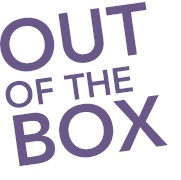Like actors, musicians and clowns, teachers should learn to improvise, according to Alan Maley & Adrian Underhill
One topic which never gets discussed in ELT is spontaneity. Yet spontaneity is at the heart of human interaction and expression.
You may prepare your lesson, even in some detail, but once you are in the classroom, stuff starts to happen and you respond. Either you use whatever happens to pursue your plan, or you suspend your plan for a moment while you derive learning advantage from dealing with what has been offered.
Either way, you accept what the class offers (questions, mistakes, misunderstandings, students’ news, chat, worries, etc.), rather than ignoring it. This capacity for spontaneity enables us to include and relate to the unfolding and unpredictable present moment. Without it we could not even have productive conversations.
We need the lesson plan, which provides purpose and direction and tools, and we need our capacity for spontaneity – to handle the cutting edge of the present moment, as we implement the plan. Spontaneity is the takenfor- granted, elephant in the room, invisible, yet making everything possible.
We all know that spontaneity helps develop the affective qualities of the teacher. Yet ELT methodology and teacher-training focuses on the planning aspect and has built a complete discourse around it. There is no such discourse around spontaneity, which is not observed, critiqued and developed with the rigour that planning is. Yet spontaneity is too important to be left to chance.
By contrast, training for other performance arts – theatre, stand-up, jazz, clowning – starts to practise, make visible and develop spontaneity and improvisation skills from the first day. The first rule in improvised theatre is ‘Accept the offer’ – go with the energy, and help make something useful of it. And when you find yourself doing this, a state of flow becomes possible, and even student mistakes become gifts to the class!
In a human setting you cannot do everything with spontaneity, but… you cannot do anything without it.
To start to develop a discourse of spontaneity and improvisation, the C Group and IATEFL Research SIG are holding a one day event on 2 November in Oxford.
Contact: https://spontaneityinelt. weebly.com/







